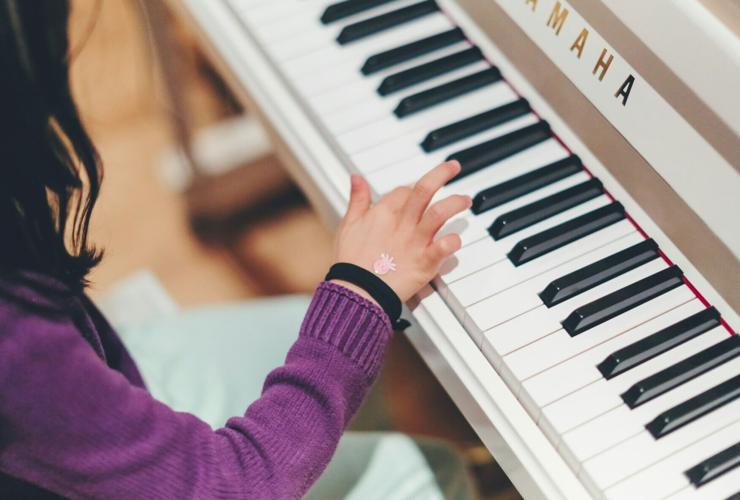
Siniz Kim
By Stephen Beech
Music therapy can help children recover from serious brain injuries, suggests a new study.
Researchers say music could provide a breakthrough in assessing consciousness levels in youngsters who have suffered significant brain injuries.
Children with disorders of consciousness rely on those caring for them to provide all aspects of their daily living, including hydration, nutrition, washing and dressing.
There is currently a lack of tools to assess consciousness in children aged between two and 18 and assessing awareness in young people is complicated by neurodevelopmental changes that occur as the child ages.
Now, researchers at Anglia Ruskin University (ARU), The Children’s Trust and Temple University have developed the Music therapy Sensory Instrument for Cognition, Consciousness and Awareness tool (MuSICCA).
It involves using musical stimulation to enable the patient to show how conscious they are.

(Photo by Andrea Piacquadio via Pexels)
Study lead author Dr. Jonathan Pool said: "The music is specially selected for the patient and a qualified music therapist performs this live to the patient, manipulating different aspects of the music depending on how the patient responds.
"The idea is to give the patient the best chance of showing what they can do.
"The music therapist observes the child’s behaviours and records these observations against a set of scales.
"MuSICCA then produces a diagnosis of the level of consciousness."
As part of the study, published in the journal Frontiers in Psychology, researchers invited a group of participants including music therapists, family members of children affected by brain injuries, and healthcare professionals to evaluate MuSICCA.
Participants in the study took part in question and answer sessions following a demonstration of the tool and were asked to rate how much they agreed or disagreed with two statements:on initial review, the MuSICCA appears to be an assessment of consciousness and awareness; and on initial review, the MuSICCA appears to be suitable for use with children and young people.
Participants were also asked to comment on the strengths and weaknesses of MuSICCA.

(Photo by Kaboompics.com via Pexels)
All participants agreed with both statements, with 85% strongly agreeing with each.
Dr. Pool, Senior Research Fellow at Anglia Ruskin University’s Cambridge Institute for Music Therapy Research, said: “Children with disorders of consciousness are often almost completely dependent on others to meet their needs.
"Their therapists, nurses and caregivers must interpret very subtle behaviours to help them understand their needs.
“There is often great uncertainty when determining this, which makes it so important to find a reliable way of assessing levels of consciousness in these young people. Currently, there are very few ways of doing this.
“MuSICCA allows the music therapist to conduct a rigorous assessment of the patient’s response to various musical stimuli, giving the therapist a picture of the patient’s level of consciousness and the strengths and weaknesses of their responses.
"The information from MuSICCA is easy to communicate to the rest of the care and medical teams and can support families in understanding what they can do to support their child’s recovery."
He added: “This study strongly suggests that MuSICCA is a suitable and comprehensive assessment method, highlighting its strengths in providing guidance, involving caregivers, and supporting clinical teams.”





